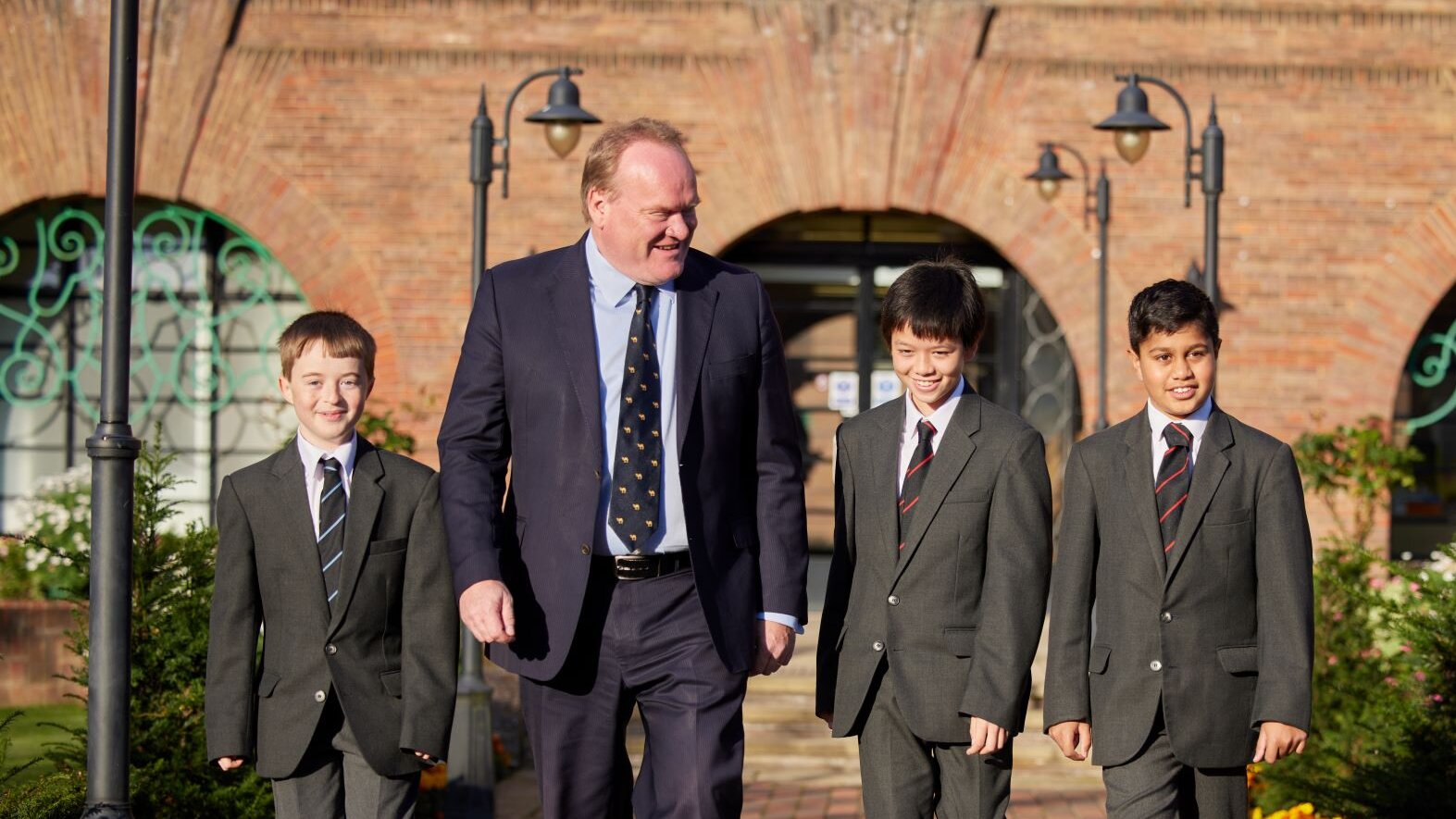Thoughts From the Head: The Purpose of Education

In this series of articles, we hear from Head Teacher Simon Everson as he shares his wisdom across a variety of topics linking to the importance of, and the theory behind a robust and engaging education. This week, we begin with the purpose of education.
We all know that Merchant Taylors’ offers a great education. But I would like to take a moment to ask a deeper question. What exactly is a great education?
I think that a good education is about well-informed and well-intentioned teachers handing on the best that is thought and known to young people, feeding their intellect, their cultural capital and their curiosity.
So, what do I want for our pupils? I want to offer them a liberal education, underpinned by Enlightenment values, offered by highly knowledgeable practitioners of the craft of teaching.
A liberal education offers an education across many different disciplines. It emphasises creativity and fluency of communication, while requiring academic rigour. It is valuable in itself, rather than for some other purpose. Its intent is to foster curiosity, underpinned by knowledge, understanding, courtesy and wisdom. It is founded on Enlightenment values which foster a sceptical independence of mind.
The philosopher Michael Oakeshott had much to say about education. For Oakeshott, education is a ‘transaction between the generations’ in which the younger are initiated into our culture. Our sense of ourselves as human beings is created by our social and cultural context – there is no hidden essence of a person lurking within us. “Human beings are what they understand themselves to be; they are composed entirely of beliefs about themselves and about the world they inhabit.” In other words, we are made up of the stories our culture tells itself about what it means to be an autonomous person in a shared society. The purpose of education is to make this cultural world available to the next generation. The duty of adults, whether parents or teachers, is to pass on this “inheritance of human achievements”. That “inheritance” is what we might now call cultural capital.
Pupils must engage with ideas, value their cultural inheritance and be prepared to commit themselves willingly to the acquisition of it. The pupils must also be equipped to challenge the culture into which they are being initiated. This lays a heavy duty upon teachers, who must first demonstrate the value of what they have to teach, and then actually impart it.
A good education is hard to acquire – it calls for effort and perseverance. What we are teaching is nothing less than how to operate as a fully-fledged human adult within our specific, albeit ever-changing, cultural context – surely the most important thing of all.
My next attempt to explain what I wish for our pupils is encapsulated by two great poets. In his Essay on Criticism, written in 1711, Pope gives his definition of a perfect critic. In my opinion the definition also defines the perfect teacher, and that not much has changed since:
But where’s the man that counsel can bestow, Still pleased to teach, and yet not proud to know? Unbiased, or by favour or by spite, Not dully prepossessed, nor blindly right. Though learned, well-bred; and though wellbred, sincere; Modestly bold, and humanly severe... Blessed with a taste exact, yet unconfined; A knowledge both of books and humankind, Generous converse; a soul exempt from pride; And love to praise, with reason on his side?
In Walt Whitman’s Song of Myself we find, in my opinion, the perfect definition of learning:
Have you reckon’d a thousand acres much? Have you reckoned the earth much? Have you practised so long to learn to read? Have you felt so proud to get at the meaning of poems? Stop this day and night with me and you shall possess the origin of all poems, You shall possess the good of the earth and sun (there are millions of suns left), You shall no longer take things at second or third hand, nor look through the eyes of the dead, nor feed on the spectres in books You shall not look through my eyes either, nor take things from me, You shall listen to all sides and filter them from your self.
But we can go yet further in our exemplars of teaching and learning. What if we were to try to make our pupils more like Leonardo da Vinci?
We find Leonardo at the spot where technological skill and creativity meet. He not only connected art and science; he refused to make any distinction between them. That made Leonardo a mathematician, surgeon, architect, visionary inventor, painter, sculptor and engineer.
Leonardo used his notebooks to guide his learning. Here is a favourite extract: ‘Describe the tongue of the woodpecker’. Let us take that challenge Leonardo gave himself. The tongue of the woodpecker is many times longer than its beak and is coiled around inside the skull of the woodpecker. Amazingly, at the moment that the bird’s beak hits the tree trunk, that tongue acts as a shock absorber to protect its brain from injury.
I find that knowledge irresistible, but it fits into no category of learning that is obviously useful. However, I bet it made you smile. And that is important too: sometimes it is good for us to know something, just for the sake of it.
What is the essence of a great education? What should we stand for? I think that five words can define what I wish for our pupils. They are these: innovation, bravery, confidence, inspiration and joy.
That is why those words lie at the heart of a Merchant Taylors’ education. They define us, not as an aspiration, but as a daily reality. They ground us, as we hold the more abstruse philosophical arguments of this article in our thoughts.
It is good to see that the end of the definition of a good education is the simplest of words: joy.